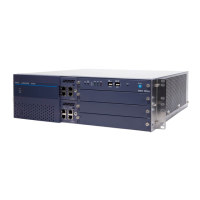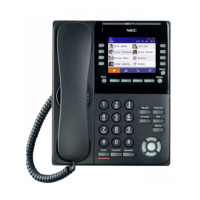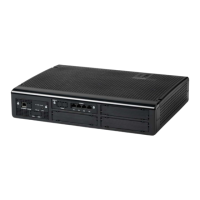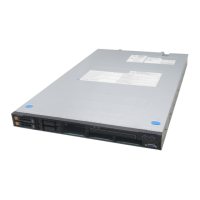– 123 –
A-85A AGENT PERSONAL QUEUE - ACD
A-85A AGENT PERSONAL QUEUE - ACD
GENERAL DESCRIPTION
Incoming ACD calls wait in queues until an agent is available to take the call. There are two types of queue for wait-
ing callers, Split Queues and Agent Personal Queues. When a call is waiting in a split queue, the next agent who
becomes available in the entire split will be assigned the longest waiting call. When a call is waiting in an Agent
Personal Queue, it can only be assigned to a single agent. A variety of overflow timeout, unavailability, and full
queue parameters can be programmed for each agent personal queue to provide for alternate call handling when the
designated agent does not get to the call in time or is unavailable.
A call is directed to a normal split queue by way of the dialed Pilot Number. A call is directed to an agent’s personal
queue by way of a Personal Pilot Number. The personal pilot number is associated with the agent’s logon ID and is
valid whenever and wherever the agent is logged onto the ACD system.
Calls (internal, external, ACD agent transfers, CCV transfers, emergency, assist, etc.) to the agent’s ACD line are
made by calling the personal pilot number. If and only if the agent is on an ACD call or is in Work mode, the call
will be queued to the agent’s personal queue. The LOGON lamp functions as the call waiting indicator for the per-
sonal queue. Calls in the agent’s personal queue have priority over calls in any split queue.
Six pieces of data may be programmed independently for each agent’s personal queue.
The Personal Pilot Number: this is the number dialed in order to call to the personal queue.
Call Waiting Chime: alerts the agent when calls arrive in queue, may be off, on first, on always.
Maximum Queue Depth: how may calls may be waiting in the agent’s personal queue.
Forward / Full CCV: how to handle calls when the queue is full or when the agent is not available. Not available
includes the two states of a) not logged into the ACD and b) on Break.
Personal Queue Timeout: how long a call may wait in queue before overflowing.
Overflow CCV: how to handle calls which overflow in timeout.
Each call that is added to the personal queue, abandons the personal queue, or overflows from the queue invokes a
display on the agent’s console. The display indicates the current depth of the personal queue; for example, PERS.
QUEUE: 4.
A call in a personal queue does not have an associated priority. A call in a split queue does have an associated priority
because the handling of a call in a split queue is based on the call’s priority and elapsed time in the queue. When a
call overflows from a personal queue or is forwarded from a personal queue, and the call is then queued to a split,
the call must have a priority assigned to it. Calls that overflow/forward from a personal queue are placed in one of
two categories for the purpose of assigning a priority.
1. Calls that were received on an ACD trunk are given the priority of the trunk.
2. Calls that were not received on an ACD trunk are given a priority that is programmed in the ACD database. The
single priority is set on a tenant-wide basis.

